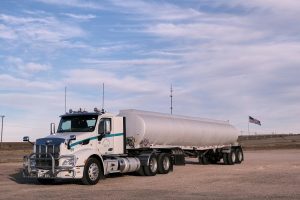
In industries where processes generate various pollutants, maintaining a clean and healthy working environment is of utmost importance. industrial filtration solutions play a critical role in removing contaminants from the air and liquids, ensuring both the well-being of workers and the integrity of production processes. As industries continue to prioritize environmental responsibility, the demand for high-quality filtration solutions that provide cleaner environments has surged. Enter a new era of industrial filtration that combines innovation, efficiency, and sustainability.
**The Role of Industrial Filtration**
Industrial processes generate a range of airborne and liquid contaminants, including dust, fumes, particulates, and chemicals. These pollutants not only pose health risks to employees but also have the potential to compromise product quality, machinery efficiency, and regulatory compliance. Industrial filtration systems act as the first line of defense against these pollutants, offering a comprehensive approach to maintaining clean and safe working environments.
**1. Air Filtration Solutions:** Airborne contaminants, such as dust, allergens, and fumes, can have adverse effects on respiratory health and overall well-being. Industrial air filtration systems, equipped with advanced filter media and technology, efficiently capture these pollutants, ensuring that the air within industrial facilities remains clean and free from harmful particles.
**2. Liquid Filtration Solutions:** In industrial processes involving liquids, ensuring the purity of the liquid is essential to product quality and safety. Liquid filtration systems remove impurities, suspended solids, and contaminants from liquids, enabling the production of high-quality products and minimizing the risk of equipment damage.

**Efficiency Meets Innovation**
Quality industrial filtration solutions go beyond basic pollutant removal; they incorporate innovative technologies to enhance efficiency, reduce energy consumption, and promote sustainable practices.
**1. High-Efficiency Filters:** Industrial filtration systems are designed with high-efficiency filters that have the ability to capture even the smallest particles. This ensures that pollutants are effectively removed from the environment, maintaining air quality and reducing the risk of occupational health issues.
**2. Energy-Efficient Designs:** Many modern industrial filtration systems are designed with energy efficiency in mind. By optimizing airflow and utilizing intelligent controls, these systems reduce energy consumption while maintaining optimal filtration performance.
**3. Modular and Scalable Solutions:** Industrial environments are diverse, and filtration needs can vary significantly from one process to another. Modular and scalable filtration solutions allow businesses to customize their systems to meet specific requirements and expand as needed.
**4. Sustainable Practices:** Sustainability is a growing concern in all industries. Many industrial filtration solutions prioritize sustainability by using eco-friendly materials, reducing waste generation, and incorporating technologies that minimize environmental impact.





